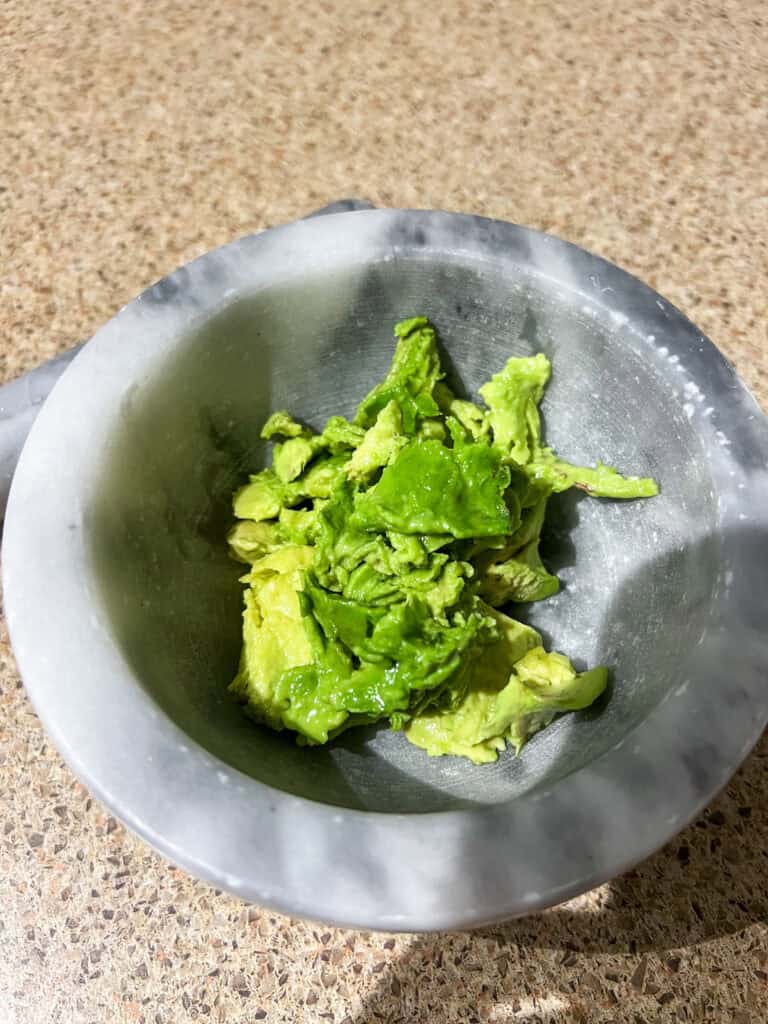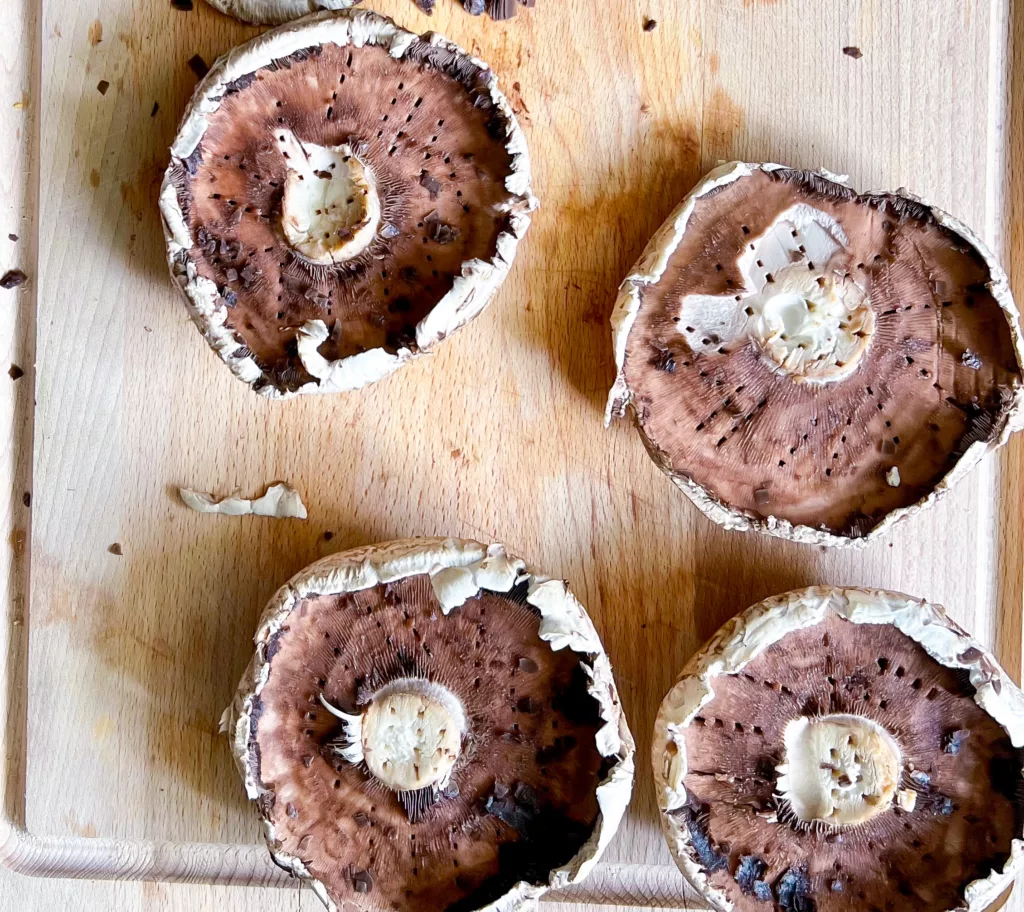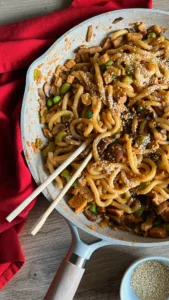Vitamin B3, commonly known as niacin, is an essential nutrient that plays a critical role in maintaining your overall health. It is part of the water-soluble vitamin group, meaning your body cannot store it, so you must consume it daily through food or supplements. Niacin is involved in many important functions, from supporting the nervous system to aiding in the production of red blood cells and maintaining healthy skin. Although animal products like beef liver are rich sources of niacin, plenty of plant-based foods can provide this key vitamin. Making it possible to meet your daily requirements on a vegan or vegetarian diet.
This article will take an in-depth look at vegan sources of vitamin B3. How these foods contribute to your health, and how to ensure you’re getting enough niacin in a balanced plant-based diet. We’ll also cover some lesser-known benefits of niacin, such as its role in weight loss, lowering cholesterol levels, and protecting brain cells.
Top 10 Vegan Foods High in Vitamin B3: A Comprehensive Table
If you’re looking to increase your intake of Vitamin B3 (niacin) on a plant-based diet, you’re in luck! From legumes to seeds, there are plenty of delicious options to help meet your daily requirements. Incorporating these into your daily diet can support brain cells, maintain blood sugar, and contribute to a healthy vegan diet. We’ve put together a table with some of the best sources of niacin in vegan-friendly foods:
| Rank | Food Source | Niacin (mg) per serving |
|---|---|---|
| 1 | Brewer’s yeast | 35.5 |
| 2 | Peanuts | 5.8 |
| 3 | Shiitake mushrooms | 4.8 |
| 4 | Sunflower seeds | 3.8 |
| 5 | Green peas | 2.3 |
| 6 | Avocado | 2.1 |
| 7 | Potatoes (with skin) | 1.8 |
| 8 | Brown rice | 1.6 |
| 9 | Lentils | 1.5 |
| 10 | Tempeh | 1.5 |
Top Vegan Foods Rich in Vitamin B3
Brewer’s Yeast
Brewer’s yeast is one of the richest plant-based sources of niacin, providing up to 35.5 mg of niacin per serving. It is a powerhouse of B vitamins, including B12. And can be used as a supplement to enhance the nutrient profile of your diet.
Peanuts
Peanuts, peanut butter, and peanut products are excellent sources of niacin. One serving of peanuts contains 5.8 mg of niacin, along with pantothenic acid and other essential nutrients. Peanuts are a perfect snack or can be added to breakfast cereals or smoothies.
Shiitake and Oyster Mushrooms
Both shiitake and oyster mushrooms are vegan-friendly options that provide a good amount of vitamin B3. Oyster mushrooms contain nicotinic acid, which helps meet your daily requirements. Mushrooms are also low in calories and rich in antioxidants, making them a great addition to your diet.
Sunflower and Sesame Seeds
Sunflower seeds contain 3.8 mg of niacin per serving, while sesame seeds are also a good source. These seeds are rich in healthy fats, including omega-6 fatty acids, and are easy to incorporate into meals. Sprinkle them over salads, blend them into dressings, or include them in baked goods.
Lentils and Black Beans
Legumes like lentils and black beans are excellent sources of niacin. Lentils contain 1.5 mg per serving, while black beans provide niacin alongside folic acid and amino acid tryptophan, which helps the body convert food into energy.
Whole Grains
Whole grains like wheat flour, wild rice, brown rice, and quinoa are rich in niacin and fiber. Incorporating these foods into your daily diet can support blood sugar regulation, heart health, and cognitive function. Whole wheat bread and rice bran are excellent sources to include in a plant-based diet.
Avocados
One avocado contains about 2.1 mg of niacin, along with healthy fats and vitamins like vitamin C and vitamin E. Avocados can be added to salads, spreads, or eaten as a snack.

Nuts like Pine Nuts and Macadamia Nuts
Pine nuts and macadamia nuts are also rich in niacin. They are known for their antioxidant protection and contribution to heart health. A handful of nuts makes a great snack or a delicious topping for breakfast cereals and salads.
Vegetables Like Brussels Sprouts and Sweet Potatoes
Brussels sprouts and sweet potatoes may not be as niacin-rich as other sources, but they are valuable additions to a balanced diet. Sweet potatoes are also rich in vitamin A, which supports eye health, while Brussels sprouts provide fiber and other vitamins.
Tempeh and Tofu
Fermented soy products like tempeh and tofu are staples in many vegan diets. Tempeh contains 1.5 mg of niacin per serving and is an excellent source of plant-based protein. These foods also contain folic acid and iron, supporting energy production and red blood cell formation.
Daily Requirements and Potential Risks of High Doses
The recommended dietary allowances (RDA) for niacin vary by age and gender. For adults, the RDA is about 14-16 mg per day. Meeting these daily values through plant-based sources is possible by incorporating a wide variety of vegan foods. However, consuming high doses of niacin, typically through supplements, can cause liver damage, skin rashes, and digestive issues. It’s always a good idea to consult medical advice before taking niacin supplements, especially if you have a medical condition or are pregnant.
For those looking to add more niacin-rich foods into their daily diet, foods like chia seeds, hemp seed, sunflower seeds, and pumpkin seeds offer excellent options. These seeds are packed with nutrients, including omega-3 fatty acids, fiber, and antioxidants. Incorporating them into meals can help you meet your daily requirements for both niacin and other essential nutrients.
The Role of Niacin in Cholesterol and Heart Health
One of the most well-known benefits of niacin is its ability to lower cholesterol levels. Niacin can reduce LDL cholesterol while increasing HDL cholesterol, which is beneficial for heart health. In fact, it has been used as a treatment for high cholesterol by healthcare professionals for years. However, if you’re taking niacin supplements for cholesterol management, it’s essential to follow your doctor’s recommendations closely to avoid side effects like liver damage and skin rashes.
Niacin and Brain Health
Niacin is crucial for cognitive function and brain health. Studies show that niacin helps protect brain cells from damage and may lower the risk of Alzheimer’s disease. For those on a vegan diet, it’s important to consume plant-based sources of vitamin B3 like whole grains, legumes, and mushrooms to support mental clarity and focus.
Balancing Niacin with Other Essential Nutrients
While focusing on niacin intake, it’s equally important to balance other vitamins like vitamin D, vitamin C, and vitamin E in your diet. These vitamins work synergistically to support immune function, skin health, and overall well-being. For example, vitamin D is essential for bone health and can be obtained through sun exposure and fortified foods like plant-based milk. Vitamin C boosts immune function and helps the body absorb iron from plant-based sources.
Pregnant women, in particular, need to ensure they are getting enough of these nutrients to support their health and the development of their baby. It’s recommended that pregnant women follow their healthcare provider’s guidance to meet the appropriate daily values of niacin and other B vitamins.
Vegan and Vegetarian Sources of Niacin (Vitamin B3)
To meet the daily recommended intake of niacin on a vegan or vegetarian diet, a variety of plant-based foods can be included in your meals. Below is a chart that highlights some of the best vegan and vegetarian sources of vitamin B3, alongside the amount of niacin per serving.
Niacin-Rich Foods for Vegans and Vegetarians
| Food Item | Amount of Niacin per Serving |
|---|---|
| Brewer’s Yeast | 35.5 mg per 100 g |
| Shiitake Mushrooms | 4.5 mg per cup (cooked) |
| Oyster Mushrooms | 3.6 mg per cup (cooked) |
| Portabella Mushrooms | 3.9 mg per cup (grilled) |
| Peanuts | 5.8 mg per 1/4 cup |
| Sunflower Seeds | 2.0 mg per 1 oz (28 g) |
| Wheat Germ | 3.8 mg per 1 oz |
| Nutritional Yeast | 10 mg per 2 tablespoons |
| Lentils | 1.5 mg per cup (cooked) |
| Green Peas | 2.0 mg per cup (cooked) |
| Brown Rice | 2.6 mg per cup (cooked) |
| Wild Rice | 3.5 mg per cup (cooked) |
Vegetarian Foods Rich in Niacin and Their Health Benefits
Incorporating a wide range of vegetarian foods into your diet is crucial for obtaining essential nutrients like niacin. Below is an overview of the health benefits of these foods and why they play an important role in maintaining a healthy vegetarian diet.
Nutritional Yeast
Nutritional yeast is a staple in many vegetarian and vegan diets, offering a significant amount of niacin. Just two tablespoons of this versatile food item can provide up to 10 mg of niacin, making it one of the best sources of vitamin B for plant-based eaters. Nutritional yeast also contains other B vitamins, such as vitamin B12, which is essential for brain function and red blood cell formation.
Green Peas
Green peas are another excellent vegetarian food rich in niacin. They offer about 2.0 mg per cup and provide a range of health benefits, including improving digestion and supporting blood vessels due to their fiber and vitamin C content. Green peas are a great addition to salads, soups, or even as a side dish.
Shiitake and Oyster Mushrooms
Both shiitake and oyster mushrooms are popular vegetarian foods, each offering a substantial amount of niacin. Shiitake mushrooms contain about 4.5 mg of niacin per cooked cup, while oyster mushrooms provide around 3.6 mg. These mushrooms are also packed with antioxidants and can improve heart health, making them a key ingredient in vegetarian and vegan dishes. They also support brain function due to their high nutrient content.
Wheat Germ
Wheat germ, the nutrient-dense part of the wheat kernel, contains 3.8 mg of niacin per ounce. This grain product is rich in fiber, vitamin E, and folic acid, contributing to improved digestion and lower cholesterol levels. Wheat germ can be added to smoothies, cereals, or used in baking to increase the nutrient density of meals.
Wild Rice and Brown Rice
Both wild rice and brown rice are excellent sources of niacin, providing 3.5 mg and 2.6 mg of niacin per cooked cup, respectively. These whole grains also offer fiber and complex carbohydrates, supporting blood sugar regulation. Including these rice varieties in your meals promotes satiety and helps maintain a healthy diet on a daily basis.
Portabella and White Mushrooms
Portabella mushrooms contain 3.9 mg of niacin per grilled cup, while white mushrooms offer a lower, but still beneficial, amount of niacin. These mushrooms are low in calories but high in essential nutrients like vitamin D, which is often lacking in plant-based diets. They also contribute to improved immune function and heart health by supporting healthy blood vessels.

Peanuts and Sunflower Seeds
Peanuts and sunflower seeds are not only delicious but also packed with niacin and healthy fats. Sunflower seeds provide about 2.0 mg of niacin per ounce, while peanuts offer 5.8 mg per serving. These seeds are also rich in vitamin E and can lower cholesterol levels, supporting heart health in healthy people.
Health Benefits of Niacin in Vegetarian Foods
Vegetarian foods high in niacin are essential for supporting a range of bodily functions. Here are some of the key health benefits provided by niacin-rich plant-based foods:
- Supports Brain Function: Niacin plays an important role in protecting brain cells from oxidative stress, improving cognitive function, and lowering the risk of neurological conditions like Alzheimer’s disease.
- Promotes Heart Health: Niacin helps regulate cholesterol levels by lowering LDL (bad cholesterol) and increasing HDL (good cholesterol), which can reduce the risk of heart disease. Whole foods like peanuts, sunflower seeds, and grains are particularly beneficial.
- Improves Digestive Health: Fiber-rich foods such as wheat germ, brown rice, and green peas not only provide niacin but also support healthy digestion and blood sugar regulation.
- Skin and Hair Health: A sufficient intake of niacin can help prevent skin conditions like dermatitis and reduce the risk of hair loss, making it vital for maintaining overall skin health. Vegetarians who consume foods like mushrooms, seeds, and fortified cereals can meet their niacin needs to promote healthy skin.
- Boosts Energy and Metabolism: Niacin helps convert the food you eat into energy, making it vital for maintaining a healthy metabolism. Foods like lentils, wild rice, and nutritional yeast provide steady energy throughout the day.
How Much Niacin Should You Take?
The recommended dietary allowance (RDA) for niacin varies depending on age and gender. For most adults, the RDA is around 14-16 mg per day. On a vegetarian diet, this daily requirement can easily be met by consuming a variety of niacin-rich foods, such as those mentioned above.
While getting niacin from food sources is generally safe for healthy people, high doses of niacin supplements can lead to side effects, such as skin flushing, liver damage, and digestive issues. It’s important to follow guidelines from the Food and Drug Administration (FDA) and seek medical advice before taking high doses of niacin supplements.
Balancing Niacin with Other Nutrients
To maintain a balanced diet, it’s important to combine niacin-rich foods with other essential nutrients. For instance, combining vitamin C-rich foods like red bell peppers with niacin-rich meals can help boost the absorption of other important nutrients like iron. This synergy is especially important for vegetarians, as plant-based diets can sometimes lack certain nutrients typically found in animal sources.
Vegetarians should also be mindful of other B vitamins, including vitamin B12 and vitamin B6, which are important for brain function and red blood cell formation. Many vegetarian foods contain these B vitamins, such as whole grains, lentils, and fortified cereals, which provide a well-rounded nutrient profile for a healthy vegan diet.
Incorporating Vitamin B3 into Your Vegan Diet
To maintain your daily requirements of niacin, it’s important to include a variety of plant-based foods like nuts, seeds, whole grains, and vegetables in your meals. Be mindful that high doses of niacin, typically found in supplements or fortified foods, should only be taken under medical advice, as they may cause side effects like liver damage or skin rashes. Including niacin in your daily diet from natural sources ensures optimal health without the risks of over-supplementation.
If you’re following a vegetarian or vegan diet, it’s also important to consider other nutrients such as Vitamin B complex, Vitamin D, and Vitamin E. Balanced intake of these nutrients supports your overall health, including protecting brain cells, improving blood vessels, and boosting cognitive function.
For pregnant women or those with medical conditions, it’s recommended to consult a healthcare provider regarding niacin intake. Always ensure you are meeting your recommended dietary allowances for optimal health.
Conclusion: Plant Based Foods High in Vitamin B3
Vitamin B3 is an essential part of a balanced vegan diet. With a variety of plant-based sources available—from nuts and seeds to whole grains and vegetables—meeting your daily requirements for niacin can be easily achieved without animal products. Incorporating foods like brewer’s yeast, peanuts, mushrooms, and lentils into your meals can support brain health, regulate blood sugar levels, and improve heart health.
Whether you’re following a vegan, vegetarian, or plant-based diet, it’s important to include a wide range of foods rich in niacin and other essential nutrients to ensure overall well-being. While niacin supplements are available, it’s always best to meet your daily requirements through natural food sources whenever possible.
Sources: Vegan Foods High in Vitamin B3
- “Niacin.” National Institutes of Health Office of Dietary Supplements. https://ods.od.nih.gov/factsheets/Niacin-HealthProfessional/
- “Top 10 Foods Highest in Niacin.” myfooddata. https://www.myfooddata.com/articles/high-niacin-foods-vegetarian-vegan.php
- “Niacin: Food Sources Ranked by Amounts of Niacin and Energy per Standard Food Portions and per 100 Grams of Foods.” USDA National Nutrient Database for Standard Reference Legacy Release. https://www.nal.usda.gov/
- “Niacin.” The World’s Healthiest Foods. https://whfoods.org/genpage.php?tname=nutrient&dbid=83




